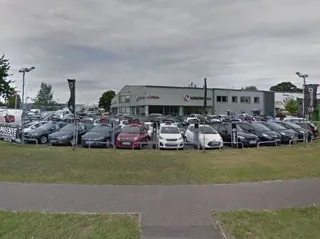The FCA took over the regulation of consumer credit in April 2014. What’s happened since?
The key milestones over the last 2 ½ years have been the authorisation of over 30,000 consumer credit firms and intervention within the payday loan and debt management sectors. This intervention has resulted in millions of pounds of redress to customers and many businesses closing because their business model didn’t satisfy FCA requirements. Many have left these sectors as complying with the FCA was felt to be too onerous and too costly with profit margins dramatically reduced, unlike the ‘heydays’ prior to FCA regulation! (writes Nigel Wray of Product Partnerships, an exhibitor at Automotive Management Live on November 16)
What has this shown? In a large number of cases, firms had business models that relied on making high profit margins without focusing on the longer term business strategy. Many delivered poor levels of customer service both in terms of value for money and giving customers the right product for their needs. You could say they didn’t ‘put the customer at the heart of what they do’; a phrase the FCA often uses to encapsulate what they expect.
So why has consumer credit predominately been left alone in the motor sector? The Limited Permissions regime puts credit broking primarily in a lower risk category than payday lending and debt management so you can see why the other sectors took precedence with more pressing issues to tackle.
It could be that the retail motor sector does give value for money, gets the right product for the customers’ needs and more often than not, puts the customer at the heart of what they do. There are always some in any industry that put profits first but overall, motor dealers have realised, particularly as new online entrants take market share, they must deliver a first class customer service if they are to prosper and grow.
So far so good. So where’s the gamble?
As the FCA says, there is a difference between customer satisfaction and customer understanding. A customer can be highly satisfied, but this could be based on the fact that they didn’t understand the product purchased. So while we can feel very content that the customer is highly satisfied when they walk out the door (they may even have given you a ‘100%’ on your customer feedback form) will they feel like that when they come back in 3 or 4 years time? If they have lower levels of equity than they expected, will you be able to demonstrate that they were aware of all the risks of the product they took out as well as the benefits? Can you produce management information that shows the key risk profiles for finance sales at that time? Can you show you had a well-trained team when the sale was made?
The Gamble
If you don’t have records showing the risks of the product were fully explained at the time of purchase and the customer agreed following this explanation, that the product was right for them, then, your highly satisfied customer could become a dis-satisfied customer who was unaware of what they were signing up for. This could lead to complaints and to the FCA reviewing your processes, training records and management information and finding they are not up to standard. Then all your hard work in delivering good customer service disappears because it’s too late to put right what you should have been doing at the time of the sale. The gamble of waiting until tomorrow to sort out your compliance tasks hasn’t worked and you and your business could suffer major losses.
Compliance can’t be done retrospectively; you can’t take chances today on the basis that you can go back and put them right in the future. Compliance follows a timeline and once the time has passed, your goal of operating a highly compliant business has gone.
What’s Next?
The FCA is active in the motor sector. GAP has been under scrutiny; does it deliver value for money? Can firms demonstrate they meet customer needs and highlight all the risks?
A number of dealers have also had their permissions terminated for non-completion of Gabriel returns; an easy task if you have collected the correct information throughout the year, but again showing that you can’t do things retrospectively. You have to do compliance tasks when they are due otherwise the consequences can be severe.
All very negative and that’s the problem. Many businesses see FCA regulation as a chore. However, those who embrace it can deliver improvements both in processes and customer service levels. Dealers, who have embraced FCA regulation as a way to look at their business, instigate positive changes, assess how well they serve their customers and ensure customers understand the commitments they are taking on, are able to thrive, work in a more professional way and grow their business.
Those who delay getting compliance in place, thinking they can ‘catch up’ at a later date, putting right what they’ve done wrong retrospectively, will find it’s too late and the gamble has failed. So, don’t delay getting your compliance monitoring programme in place. Do it today, or in the future you could find you have customers with legitimate claims against you and the FCA looking negatively at the way you have operated in the preceding years. Things that could cost you dearly, wiping out prior year profits and lead to customer retention levels falling dramatically.
Are you gambling with FCA regulation?
Author: Nigel Wray, Product Partnerships
















Login to comment
Comments
No comments have been made yet.